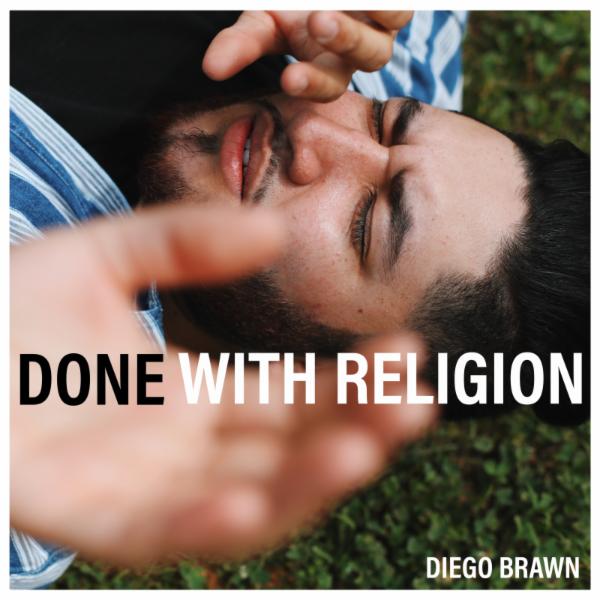by Rocky Glenn

In The World’s Greatest Leadership Principle: How To Become A Servant Leader James Hunter defines love as the act of extending yourself for others by identifying and meeting their legitimate needs and seeking their great good. We’ve looked at Hunter’s classification of love as a skill as it requires repeated practice, but what does it mean to extend yourself? Extend means stretch longer or wider to cover a larger space. In the previous post, we looked at how this extension begins with patience and kindness. The next three traits require we stretch ourselves further in developing the true skill of love.
Humility
Humility is defined as displaying an absence of pride, arrogance, and pretense. It is often mistaken as weakness and having a “poor pitiful me” complex. However, true humility keeps things in perspective knowing its strengths and weaknesses and recognizing all are capable of mistakes. It produces authenticity as humble people know who they really are, they keep their egos in check, and allow space for uncertainty and the opinions of others, even if contrary to their own. Because they know they don’t have all the answers, and they’re okay with it, they don’t take themselves too seriously and are even able to laugh at themselves. In Mere Christianity, C. S. Lewis describes humility as follows:
To even get near [humility], even for a moment, is like a drink of cold water to a man in a desert.
Do not imagine that if you meet a really humble man he will be what most people call “humble” nowadays: he will not be a sort of greasy, smarmy person, who is always telling you that, of course, he is nobody.
Probably all you will think about him is that he seemed a cheerful, intelligent chap who took a real interest in what you said to him.
If you do dislike him it will be because you feel a little envious of anyone who seems to enjoy life so easily. He will not be thinking about humility: he will not be thinking about himself at all.
This past weekend, the family and I took the opportunity to view A Beautiful Day in the Neighborhood which is based on a journalist’s interactions with Fred Rogers for his article assignment. In the first phone conversation between the two, Fred makes the following statement, “Do you know what the most important thing in the world is to me right now? Talking on the phone with you.” This interaction embodies the words of C. S. Lewis above. To use the definition of love from James Hunter, humility extends itself by taking an interest in others in the moment as it happens.
Respect
Respect is simply treating people like they are important or like they matter. Genuine respect is felt when originating from a truly humble person. Being respectful of others includes treating even those we consider insignificant or find challenging with the same consideration of those we consider important or of great stature. A common misconception about respect is that it must be earned. Hunter points out respect is not earned, it is given. I am a systems guy who loves spreadsheets, calculations, and data analysis. When faced with a decision, I’ve often created pro and con lists both mentally and physically. Hunter reminds us respect is not earned based upon a spreadsheet tallying someone’s positives and negatives but should be given based simply on the fact of being human and because everyone is important even when we judge someone as behaving poorly or undeserving.
In the aftermath of September 11, 2001, all major U. S. airline companies reported a loss in the third quarter except one. The employees of Southwest Airlines organized a giveback effort to contribute a portion of their paycheck back to the company to keep it afloat. What would cause employees to make such a decision for their employer? Although he had stepped down six months before the dreadful event of that day, twenty-year CEO Herb Kelleher of Southwest Airlines had created a culture within his company: “A company is stronger if it is bound by love rather than by fear.” This attitude of love and respect was not something Kelleher developed overnight but was instilled in him at an early age by his mother who taught him “that positions and titles mean absolutely nothing. They’re just adornments; they don’t represent the substance of anybody . . . She taught me that every person and every job is worth as much as any other person and any other job.”
Boxing great Muhammad Ali described respect this way, “I don’t trust anyone who’s nice to me but rude to the waiter. Because they would treat me the same way if I were in that position.”
Selflessness
Selflessness is defined as meeting the needs of others and requires giving of yourself. It finds its home in the willingness to set aside one’s wants and needs in seeking the greatest good for others and putting others before yourself. Selflessness is an impossibility without humility and respect. C. S. Lewis also captured the heart of selflessness in his further words on humility: “Humility is not thinking less of yourself, it’s thinking of yourself less.” The nature of selflessness is what allows us to extend ourselves to cover wide spaces others may be unwilling or even unable to cover and cross.
In conclusion, referring once again to Paul’s letter to the Philippians, he reminds them of these three traits of love with the following:
Don’t be selfish; don’t try to impress others. Be humble, thinking of others as better than yourselves. Don’t look out only for your own interests, but take an interest in others, too. You must have the same attitude that Christ Jesus had.
Paul explains this mindset is displayed in the attitude and life of Jesus. Hunter lists no greater example than Jesus of love and servant leadership.
So, how does this play out in our daily lives? Do you consider yourself humble, respectful, and selfless? How do you handle interruptions in your daily tasks or routines? I’ve written previously of my struggles in this area and room for practicing each of these skills. Remember, love is not a feeling and not based on our feelings but is a choice we make and exhibit through our behaviors.
On a humorous note, and just to end with a chuckle, I’ve always considered traffic quite a transparent scenario to examine oneself in displaying these qualities. How selfless are you when in a hurry and others simply won’t get out of the way? How much humility and respect do you show to drivers who insist on waiting to the last minute to merge or simply refuse to yield?
I’ll be the first to admit I need more practice on each of these skills.
Rocky
Read Full Post »

























